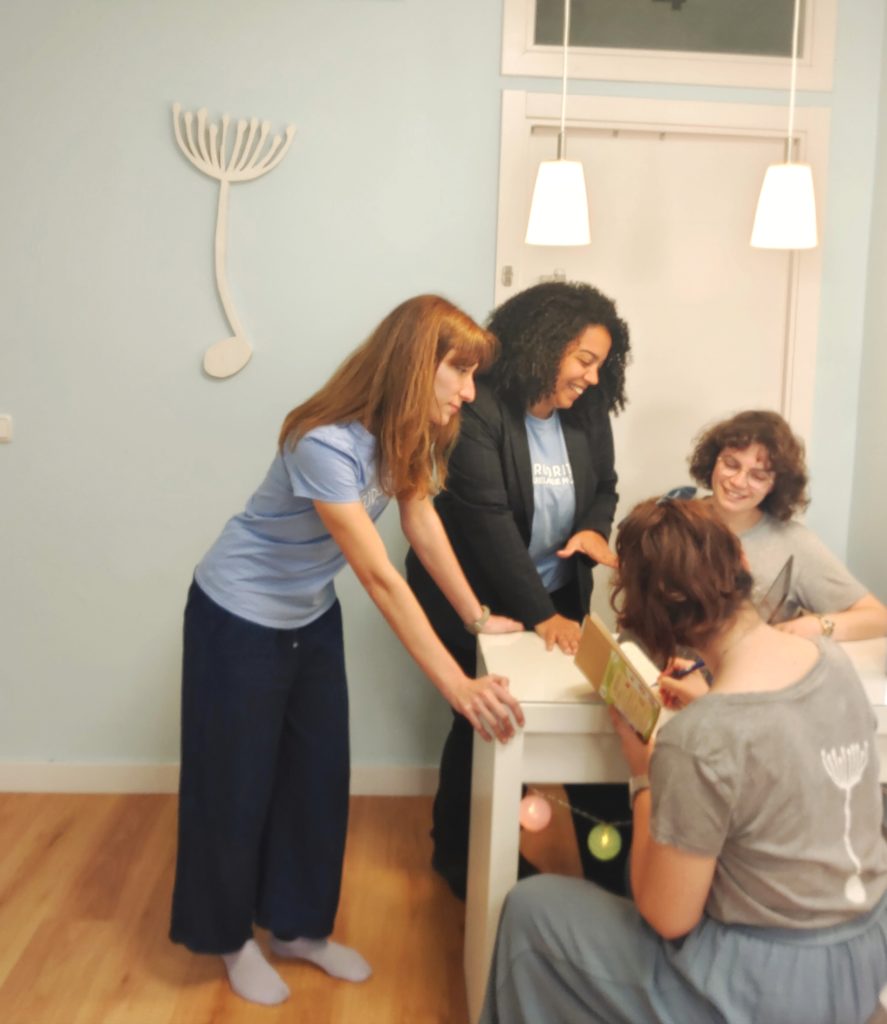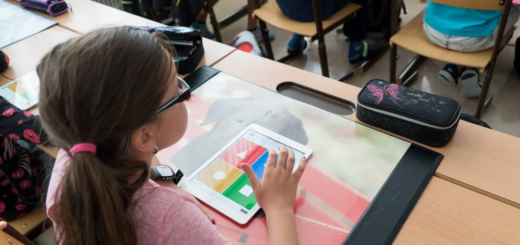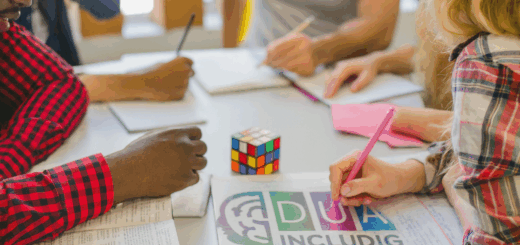Collaborative research in educational contexts: the case of the Gorgoritos teaching staff
But nowadays, this research is not only the responsibility of external agents, but it is the teachers themselves who participate in the project who use research as a tool to observe, analyze and improve the educational processes they develop. Around Gorgoritos, a space of coexistence is created where music education expands its benefits to the population, transferring the results of educational research to society in an immediate way. This program provides services to numerous families, to schools in the province of Granada and establishes a systematic collaboration with public and private organizations in the promotion of music, culture and education.

Thus, this is a space that promote the daily encounter between University, School and Community through action research, research that is led by its teachers and that is carried out in collaboration with researchers from our group.
In this process, an instrument for the observation of musical experience in childhood is used as a fundamental tool (Reyes-López et al., 2023). This instrument was constructed from a review of the literature and reflection on practice. With a broad and reflective approach, the instrument has a dual purpose. On the one hand, it allows us to analyze educational experiences and provide evidence about what is learned, how it is learned and the repercussions of what is learned when we develop a musical activity. On the other hand, it is a tool for teachers to investigate and improve their own practice based on observation and reflection. Thus, its usefulness lies not only in the possibility of understanding the musical experience by the researcher, but it becomes a tool for the analysis and improvement of the professional activity of teachers who incorporate it into their daily practice.
This tool is used to train the teaching team in their conceptions of music education, to unify the views and the language used to refer to the fundamental questions of the observation of practice and to provide a common framework that focuses the observation and gives the first keys to facilitate the role of the teacher-researcher. From there, the teachers share their educational approach and design the programs collaboratively. This creates a professional space for shared learning that deepens the culture of collaboration. The teachers learn together and make contributions from their own experience that enrich the group.
By conversing, exchanging knowledge and reflecting on daily practice based on a solid examination of reality, teachers and researchers become involved in learning from this horizontal interaction. As a result, the strengths and weaknesses of the work are identified in order to adjust and improve it. There is a dialogue for decision making and role hierarchies within the group are minimized.
Thus, this collaborative work network becomes an organization that learns and increases its capacity for action, improving pedagogical processes and contributing to overcome individual and sporadic actions. It encourages the improvement and innovation of educational processes because it involves a system linked to new ways of learning (Hernández and Navarro, 2018) and articulates the incorporation of research as an inherent element of professional practice.
Critical educational models point to the need for educational experiences to adapt to changing social circumstances and seek an integral development of children especially in the infant stage (Vega-Gil, 2017). In this context, openness to the community is fundamental to maintain contact with everyday reality. Educational research points out the importance of the family-school relationship and the involvement of families in the educational center (Bolívar, 2006; Simón et al., 2016).
In this relationship, research is also an indispensable element since it facilitates the families’ understanding of the educational meaning of the project. From the beginning, families know and consent to the research that is carried out in the classroom. The fact that this is something organic within the project generates a climate of trust between teachers and families where they point out the value of shared learning, and recognize that it is not usual to find education professionals who openly express their attitude as learners and who develop a systematic work of revision and improvement of their practice.
This is an example of how collaborative research implies a change in the ways of understanding scientific processes in education, based on the need to find answers to a problem or to provide evidence of what is transforming reality. We observe that the research that is done with and from the educational spaces, overcomes this artificial and imposed model from the institution that is being transformed into something much more natural and organic. Examples like this contribute to the democratization of the concept of research as they allow us to ask questions together and reflect on the complexity and challenges posed by everyday reality. This is, undoubtedly, a path that School and University must travel together.
References:
Bolívar, A. (2006). Familia y escuela: Dos mundos llamados a trabajar en común. Revista de Educación, 339, 119-146. http://hdl.handle.net/11162/68682
Feuer, M. J., Towne, L., y Shavelson, R. J. (2002). Scientific Culture and Educational Research. Educational Researcher, 31(8), 4–14. http://www.jstor.org/stable/3594387.
Hernández, E. y Navarro, M.J. (2018). La participación en redes escolares locales para promover la mejora educativa, un estudio de caso. Profesorado. Revista de Currículum y Formación de Profesorado, 22(2), 71-90. https://doi.org/10.30827/profesorado.v22i2.7715
Ocaña-Fernández, A., Gámez-Sánchez, E., Ocón-Fernández, B. y Reyes-López, M.L. (2023). Investigación colaborativa como estrategia para la transformación de la práctica docente. En A. Ocaña-Fernández (Coord.), El laboratorio pedagógico. Un espacio de investigación y transformación educativa (pp. 119-133). Octaedro.
Reyes-López, M. L, Ocaña-Fernández, A. y Montes-Rodríguez, R. (2023). Guía de observación y análisis de la experiencia musical. Zenodo. https://doi.org/10.5281/zenodo.8010548
Simón, C., Giné, C., y Echeita, G. (2016). Escuela, familia y comunidad: Construyendo alianzas para promover la inclusión. Revista Latinoamericana de Educación Inclusiva, 10(1), 25-42. http://www.rinace.net/rlei/numeros/vol10-num1/art1.pdf
Vega-Gil, L. (2017). El proceso de Bolonia y la Escuela Nueva: Un análisis comparado de convergencias y divergencias. Educação, Sociedade & Culturas, 51, 119-136. https://doi.org/10.34626/esc.vi51.87

Authors:
Mª Luisa Reyes-López
Almudena Ocaña-Fernández
ICUFOP research group “Curriculum research and teacher training”.
University of Granada
[/su_note]






